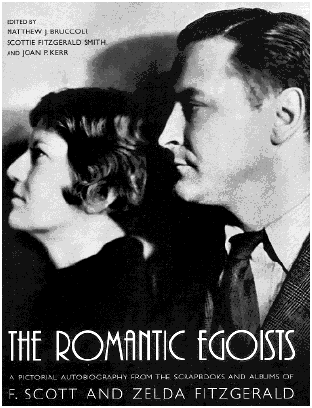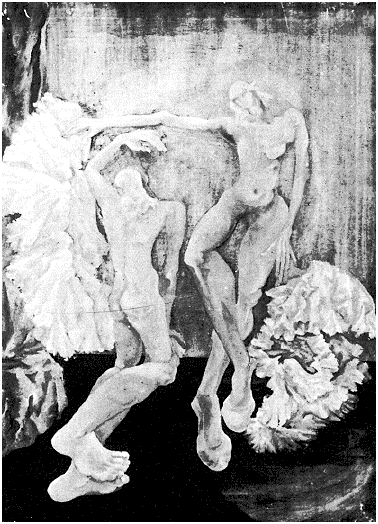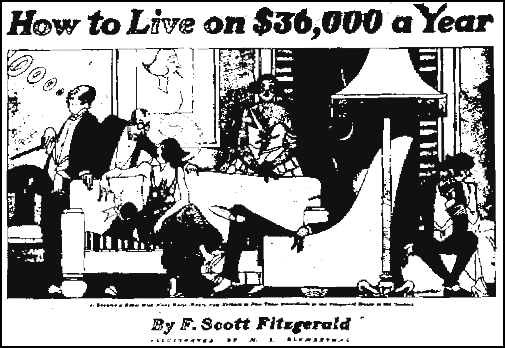Mercy
Seat
Collected &
New Poems,
1967 - 2001
Norman Dubie
(Copper Canyon)

- From boulder to pasturage
To a horse-chestnut tree --- cry of killdeer ---
That stands like the government agent
With ears of the buddha.
Sprays of rhododendron
Across the caskets of French merchants,
Their daughters , and the stewardess
From Marseille who hurriedly
Washed her speckled breasts in talcum.
- The way grapes will cast a green rail,
With tendrils and flowers, out along
A broken fence, down the edge of a field,
Then, climbing over hawthorn and up
Into low branches of an elm...
which will later, in the same poem, devolve into what one might describe as Coprolytic Realism:
...under the branch,
On which the raccoon is situated,
His deep brown feces splatter over
Queen Anne's lace and the waving sedge
Of the pond...
Too, he's a master of historical detail, drawing on, in one case, the ancient sport of bear-baiting, filled with contemporary details of the court of Queen Elizabeth, historical minutæ with a vengeance:
The balding Queen had bear gardens in London and in the country.
The bear is baited: the nostrils
Are blown full with pepper, the Irish wolfdogs
Are starved, then, emptied, made crazy with fermented barley.
This is obviously someone who has done his research, loves squeezing all of it into poetic metres.
Pit this against the daring mixed vision of a man out in a row-boat in the fog, or, perhaps, taking a bath in a steamy hotel-room:
A large man rowing in a white tub
While the fog sweeps over him
And the orange pines of the island
reflect everywhere in the brightly tiled room.
The red shell of the razor clam
And a cup of soap rest on a fresh towel.
He lowers his head, moose moving like his genitals
Through the room, he steps out onto the water ---
He hears the telegraph of glass beads, the decades
Of drowned nuns traveling to Quebec.
Some of the images are so outré as to take one to the very edges. These are combined with a delicate sensuality that bests the impressionists, images out of a Garcia-Lorca poem, intermixed with a startling retake of the Song of Songs: the girl who
undressed and stepped
Into the river, the girl's breasts
Are large and moved separately like twins
Handed from one serf to the next
Down to a river for baptism.
Contrast this to the stark reality of the "laughing fat girl in a T-shirt ... pumping/Milk from her swollen breasts, cats/lapping at the trails" which ends in a nearby shed "Where in thirty years there will be a music box
Containing a lock of hair, her rosaries,
Her birth certificate,
And an impossibly sheer, salmon-pink scarf."
This Dubie is strange and wonderful and deserves your consideration. This particular volume lay around on my desk for a few months while I picked it up, pawed through it, put it down, picked it up again, wondered at the startling images, wanting to write it up, but hesitating, knowing, as all of us must know sometime, that we would be hard-pressed to get something like this down, to make it comprehensible to ourselves, to others. Dubie's images can be so fresh as to force one to go through it again, just to see how he pulls it off; and once savored, reminding one of the best of haiku:
The birches stand in their beggar's row
Each poor tree
Has had its wrists nearly
Torn from the clear sleeves of bone.
These icy trees
Are hanging by their thumbs
Under a sun
That will begin to heal them soon...
To me, the most awful and successful of his writings are those that touch on the holocaust. It is rare, so rare, that a poet can somehow blend the sacred and profane so exquisitely balanced, the unspeakable tension between gloriousness, and brutality --- setting a tautness to the words that reminds one of a combination of Hemingway, Schwarz-Bart, Laurie Lee, Alain Resnais --- or perhaps, strangely enough, the mature Byron:
As a girl, in Poland, she watched her husband
Be dragged through the shade of five pines
To the execution wall. A year earlier
She had watched him bathe
In the bronze tub the landlord had put
Out in the field as a trough for horses.
Note the reversal, first the execution, then the scene of bathing, with its detail ("five pines" "bronze tub ... a trough for horses.") There is in this a melding of horror and beauty, something that takes poetry beyond poetry, into the realm, as Ruskin would say, of the visionary's divine. This ability to mix of love and violence reaches its highest artistry in his Dachau. In the twenties, the narrator
would visit Dachau ... with my brother...
There was then an artists' colony outside the Ingolstadt Woods.
From this delicious pastoral scene we get a lecture, if you will, about the plants that grow there in Dachau, an uncommon flower that can
grow to an enormous height
If planted in water. It is a succulent annual. Its private
Appointments are oval and its nodding blossom takes its weight
From pods with crimson threadlike supports.
Suddenly we move from this treed glory to torture,
They have kept me in
A small cell. A young lieutenant tortured me that first night ... As I was tortured I forced myself
To dwell on the adult life of the touch-
Hawthorn, and my brother's drunken anatomy lesson that showed
No skill at all there in the silver meadow.
It is glorious, tragic writing of the highest order, a potent, powerful, appallingly beautiful marriage of youth and frivolity and the destruction of all youth and hope.
If you fret, as I often do, about the genetically modified corn that seems to be growing up all over the pastures American poetry, this might give you heart. Dubie, they tell us in the very briefest of notes, teaches at Arizona State University. I recall taking some poetry classes fifty years ago, and all I got for it was this lousy reviewing job. If I were forty again (if I were forty again!) I might hot-foot it out to Tucson, sign up with Dubie so I could learn to write some real poetry about real things that wring the heart and bare the soul.
The Mercy Seat
Romantic
Egoists
A Pictorial Autobiography
From the Scrapbooks and
Albums of F. Scott and
Zelda Fitzgerald
Matthew J. Brucooli, et. al.,
Editors
(University of South Carolina)

A professor of mine once said that The Great Gatsby was probably one of the most perfect novels ever written. What he probably meant by that was that the whole was nicely balanced, with a gracious pacing which melded to an excellent union of art and feeling. Or something strange like that.
Here we are and have read your book and it is a good book. I like the melody of your dedication and it shows that you have a background of beauty and tenderness and that is a comfort. The next good thing is that you write naturally in sentences and that too is a comfort. You write naturally in sentences and one can read all of them and that among other things is a comfort. You are creating the contemporary world much as Thackeray did in his Pendennis and Vanity Fair and this isn't a bad compliment. You make a modern world and a modern orgy strongly enough it was never done until you did it in This Side of Paradise. My belief in This Side of Paradise was alright. This is as good a book and different and older and that is what one does, one does not get better but different and older and that is always a pleasure.
 "That for me is always a pleasure." And for rest of us, the varied and beautifully chosen passages in The Romantic Egoists, drawn from novels and short stories, passages that not only light up the world that he and Zelda and Scotty are living but remind us again what an exquisite stylist Fitzgerald was, a man who could make the English language sing, even when he was but writing about his own Scotty:
"That for me is always a pleasure." And for rest of us, the varied and beautifully chosen passages in The Romantic Egoists, drawn from novels and short stories, passages that not only light up the world that he and Zelda and Scotty are living but remind us again what an exquisite stylist Fitzgerald was, a man who could make the English language sing, even when he was but writing about his own Scotty:
One's eyes moved quickly to her daughter, who had magic in her pink palms and her cheeks lit to a lovely flame, like the thrilling flush of children after their cold baths in the evening. Her fine high forehead sloped gently up to where her hair, bordering it like an armorial shield, burst into lovelocks and waves and curlicues of ash blonde and gold. Her eyes were bright, big, clear, wet, and shining, the color of her cheeks was real, breaking close to the surface from the strong young pump of her heart. Her body hovered delicately on the last edge of childhood --- she was almost eighteen, nearly complete, but the dew was still on her.
We learn much from The Romantic Egoists. A photograph of his tombstone tells that his full name was Francis Scott Key Fitzgerald. Some quotes from Zelda's amidst her canvasses prove that she was a fair writer, but a strange, strong and disturbing painter [See Fig. 2 above].
Letters to daughter Scottie at Vassar prove him to be a nag, but a funny one: "Another letter tells of visiting Mary Earle on Long Island. It sounds fine, but you are right that romantic things really happen in roachy kitchens and back yards. Moonlight is vastly over-estimated."
And, on the same page as the Zelda/Scott/Scottie foot kicking scene before the Christmas Tree, in a casual note to the ever-patient Maxwell Perkins, talking about The Great Gatsby, manages to combine all the contrary elements in the author's live, and gives powerful hints of future agonies:
I write you from the depth of one of my unholy depressions. The book is wonderful --- I honestly think that when it;s published I shall be the best American novelist (which isn't saying a lot) but the end seems far away. When it's finished I'm coming home for awhile anyhow thought the thought revolts me as much as the thought of remaining in France. I wish I were twenty-two again with only my dramatic and feverishly enjoyed miseries. You remember I used to say I wanted to die at thirty --- well, I'm now twenty-nine and the prospect is still welcome. My work is the only thing that makes me happy --- except to be a little tight --- and for those two indulgences I pay a big price in mental and physical hangovers.
Rich and strange, as rich and strange as a note he wrote so much earlier on: "It grows harder to write, because there is much less weather than when I was a boy and practically no men and women at all."

--- Sandra E. W. Fielding